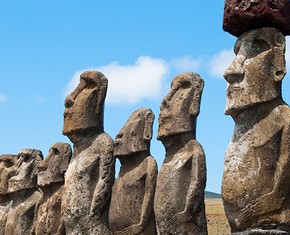The views expressed in our content reflect individual perspectives and do not represent the authoritative views of the Baha'i Faith.
As I wrote in the first part of this two-part series, I initially learned about the Bab through my storyteller-friend Ross.
While in the early stages of my own path toward being a Baha’i, I also grew to recognize how the Bab connected to Baha’u’llah. Specifically, I learned that the Bab’s primary mission – to prepare the way for the coming of “Him Whom God Shall Make Manifest,” the one who would fulfill the prophecies of past religions – did not end there.
In fact, the Bab promulgated a whole set of new religious principles, insights, and laws, including:
- His role as “the Gate” meant that he served as the transitional figure to another messenger, whose message was even greater than his own.
- He wrote thousands of prayers, documents, and letters – which inspire as well as instruct.
- He taught that every atom, particle, and living creature of the universe reflects the attributes of the Creator.
- He pronounced that humanity was ready to realize its destiny through the concept of unity – one Creator, one eternal truth through a succession of messengers and religions over time, one people with diversity welcomed rather than shunned.
These principles, and many more from the Bab, have countless practical outcomes in the world – but for the purposes of this short essay, let’s focus on just one of his most tangible and readily understood teachings:
- The Bab called for a spiritual and moral reformation to improve the status of women.
How fitting that one of the earliest Babis was a woman – the famed poet Tahirih – and her own actions after recognizing the Bab are acknowledged as among the earliest of the emancipators of women.
Some of the Bab’s teachings and their outcomes might seem like common sense to us today, but let’s remember that they appeared in mid-1800s Persia. Come to think of it, mid-1800s anywhere would have seen the Bab’s teachings as revolutionary ideas. Consider Canada at that time: not even a nation yet!
As a result of his teachings, which threatened the ruling government and the entrenched clergy, the Bab was imprisoned and thousands of his followers were stripped of their property and their businesses, denied the rights of their country, tortured and slaughtered. Eventually, after years of persecution and imprisonment, in 1850 the Bab himself was executed by a government firing squad. The events of that day culminated a lifetime magnificent in its impact though brief in its years.
Baha’u’llah, destined to be the founder of the Baha’i Faith, was among the early Babis. Baha’u’llah was born into a wealthy and influential family, but rather than follow that path he chose instead to devote his time and wealth in service to others, especially the poor. As one who lived a spiritually-inspired life of great wisdom and personal magnetism, upon the execution of the Bab he was given the mantle of leadership by the other Babis.
It’s no surprise, given the history of his predecessor, that the corrupt government and jealous clergy opposed Baha’u’llah. In 1852 while imprisoned for the crime of being a Babi, he recognized his own calling as a prophet of God – indeed as the fulfillment of the phrase “He Whom God Shall Make Manifest.”
Baha’u’llah received a vision and a mission — much like the Bab before him, Muhammad before the Bab, Christ before Muhammad, and Moses as well as other divine messengers throughout countless ages of time.
What did Baha’u’llah teach? All of the Baha’i principles stem from the Bab’s call for human unity:
- The oneness of humanity — all are spiritual brothers and sisters
- The elimination of all forms of prejudice
- The essential harmony of science and religion
- Work carried out in the spirit of service as a form of worship
- Spiritual, social, and material progress to be sought simultaneously and in balance
- The maturation of humanity and each individual’s right to their own independent investigation of the truth
- A universal auxiliary language and a standard global system of weights and measures
- A global consciousness with a shared concern for the well-being of our planet and its creatures
- Inviting others to join us in applying these teachings to carry forward an ever-advancing civilization.
Though I have been a Baha’i for nearly 40 years, I continue to learn and to be inspired as I strive to integrate the faith’s principles and practices into my own life. The history of the Baha’i Faith — and its relationship to the teachings of the Bab — is rich with stories that appeal to both the mind and the heart of seekers as well as scholars.
















Comments
Sign in or create an account
Continue with Googleor